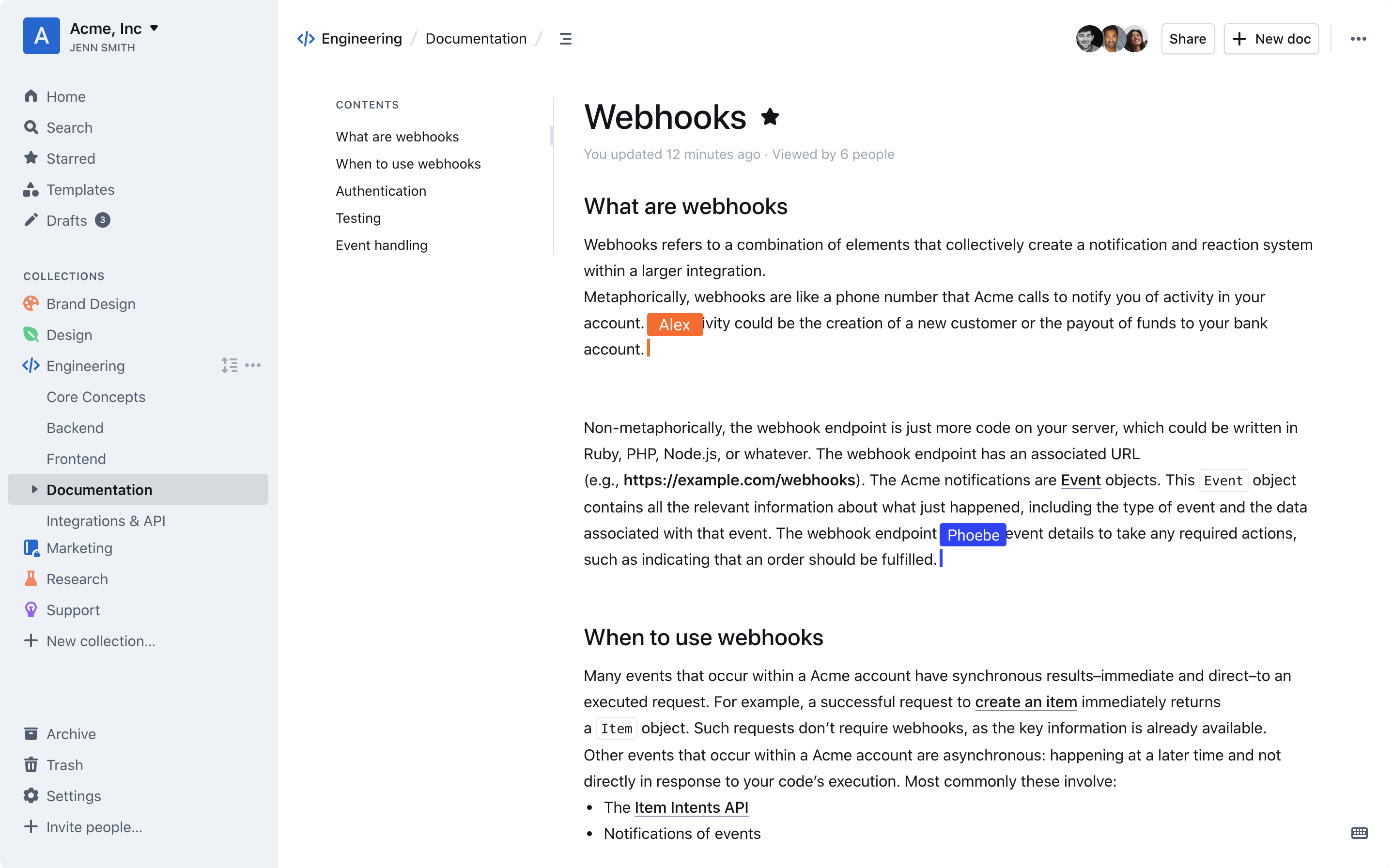
Deploy Outline [Updated Feb ’26]
Outline [Feb ’26] (Team Wiki, Notion & Confluence alternative) Self Host
Just deployed
/var/lib/postgresql/data
Outline
Just deployed
/var/lib/outline/data
Redis
Just deployed
/bitnami

Deploy and Host Managed Outline Tool with one click on Railway
Outline is a free, open-source knowledge base and wiki platform available on GitHub, designed for teams who want to organize documents, collaborate, and share notes efficiently. With Outline, users gain full control over their knowledge base and notes setup, supported by an active open-source community around the Outline GitHub repository.
About Hosting Outline on Railway (Self Hosting Outline Tool on Railway)
You can self host Outline to keep all your documents, team notes, and knowledge base entirely under your control, with zero third-party involvement. With the Outline tool, you benefit from advanced collaboration, easy navigation, and a powerful editor tailored to team documentation. The Outline deploy process is streamlined on modern cloud platforms such as Railway, making it easy to set up, scale, and manage your team knowledge base while preserving privacy and security at every step.
Why Deploy Managed Outline Service on Railway
Deploying a managed Outline tool service on Railway gives you effortless setup, automated scaling, and simplified maintenance for your Outline docs, letting you focus on team collaboration without worrying about infrastructure management. It combines the privacy and control of Outline with the convenience of a fully managed cloud platform.
Railway vs DigitalOcean:
While DigitalOcean requires manual server setup, ongoing maintenance, and backup handling to self host Outline, Railway enables instant Outline deploy with zero sysadmin burden and built-in scaling for your Outline wiki and docs.
Railway vs Linode:
Linode involves manual configuration for Outline docs hosting and security patching, but Railway automates updates, runs Outline in secure, managed containers, and provides a clean interface so you can self host Outline easily.
Railway vs Vultr:
With Vultr, you must manage networking, custom storage, and scaling for Outline notes, whereas Railway automates these tasks and makes Outline deploy as simple as a few clicks.
Railway vs AWS Lightsail:
AWS Lightsail adds complexity with networking, manual scaling, and OS-level admin for Outline wiki hosting, but Railway removes these obstacles, offering fast and seamless Outline app deployment with auto-scaling.
Railway vs Hetzner:
Hetzner is known for affordable VPS pricing but requires you to manage every server detail for Outline docs; Railway’s managed platform handles the operational work, empowering you to Outline deploy securely and quickly without sysadmin headaches.

Common Use Cases
Here are 5 common use cases for Outline tool:
- Company Knowledge Base: Build an internal wiki for policies, team documents, onboarding, and SOPs using Outline wiki.
- Team Collaboration: Organize Outline notes into structured collections for better project management.
- Documentation Hub: Use Outline docs as a public or private documentation site for software, products, or services.
- Personal Notes & Organization: Self host Outline for personal note-taking and structured knowledge management.
- Client Portals: Share curated Outline notes and documentation collections with clients securely.
Dependencies for Outline Tool hosted on Railway
To host Outline on Railway, you typically need a PostgreSQL database, Redis for caching, and a Node.js runtime.
Deployment Dependencies for Managed Outline Service
A managed Outline service on Railway requires PostgreSQL, Redis, Node.js, and storage, all provisioned and maintained automatically by the platform.
Implementation Details for Outline (Docs & Notes Wiki)
To deploy Outline, you'll need to set environment variables such as DATABASE_URL, REDIS_URL, URL, and SECRET_KEY to connect with the backend services. Railway provides a simple environment variable manager to configure these easily.
How does Outline look against other Knowledge Base Platforms
Outline vs Notion
Outline is self-hosted, offering full control and privacy, while Notion is a cloud SaaS with advanced integrations but stores data on third-party servers. Outline tool is ideal for privacy-focused users who want open-source flexibility.
Outline vs Confluence
Outline provides a lightweight, modern, and open-source knowledge base, while Confluence is enterprise-grade with integrations but can be complex and expensive. Outline deploy is simpler and faster.
Outline vs Bookstack
Both are open-source, self-hosted documentation tools. Outline has a sleek editor, integrations, and team collaboration focus, while Bookstack provides hierarchical documentation structures with a simpler UI.
Outline vs GitBook
GitBook is a hosted documentation solution with Markdown-first approach, while Outline offers a collaborative, modern editor, and the ability to self host Outline docs for free.
Outline vs Wiki.js
Outline has a more polished editor and team-focused design, while Wiki.js emphasizes extensibility and plugin systems. Both allow self hosting, but Outline focuses more on simplicity and collaboration.
How to use Outline?
To use Outline, deploy it on Railway or your VPS, connect to a PostgreSQL database and Redis, and configure your domain. Once set up, log in to the Outline dashboard, create collections for different teams or topics, and start writing Outline notes and documents collaboratively.
How to self host Outline on other VPS?
Clone the Repository
Download Outline from GitHub using https://github.com/outline/outline.
Install Dependencies
Navigate to the project folder and ensure your VPS has Node.js, PostgreSQL, and Redis installed.
Configure Environment Variables
Set up variables like DATABASE_URL, REDIS_URL, SECRET_KEY, and URL for your Outline wiki instance.
Start the Outline Application
Run the Outline server with Node.js. Configure your reverse proxy (like Nginx or Traefik) to serve the Outline app on your domain.
Access the Outline Dashboard
Log in to your Outline docs dashboard, create collections, and start collaborating with your team.
These steps allow you to fully control your Outline deployment and data with self-hosted flexibility. With Railway, you can self host in a single click. Deploy Now!
Features of Outline Tool
- Sleek, modern editor with collaborative features.
- Collections for organizing Outline notes and documents.
- Powerful search and tagging for fast retrieval.
- Markdown support with formatting flexibility.
- Integrations with Slack, Google Drive, and more.
- Self-hosting for privacy and data control.
- Multi-user collaboration with role-based permissions.
Official Pricing of Outline Cloud service
Outline is free and open-source to self host. For managed Outline hosting (get outline cloud), pricing varies depending on provider. Some services start around $10–$20 per user/month. [Updated Oct ’25]
Self hosting Outline vs Paid Plans
Self hosting Outline is free with full control and privacy, while managed Outline cloud plans offer automatic updates, support, and extra integrations for a monthly fee.
Monthly cost of Self hosting Outline on Railway
Self hosting Outline on Railway generally costs $5–$10 USD per month for the app instance, plus extra for PostgreSQL and Redis. Costs depend on team size and Railway plan, but it remains cheaper than most paid wiki platforms.
System Requirements for Hosting Outline
- Node.js runtime
- PostgreSQL database
- Redis server
- 1–2 GB RAM for small teams
FAQs
What is Outline Tool?
Outline tool is a self-hostable, open-source knowledge base and wiki platform for team collaboration and documentation.
How do I self host Outline?
You can self-host Outline by deploying it on Railway, DigitalOcean, or any VPS with Node.js, PostgreSQL, and Redis.
What are the key features of Outline docs?
Outline docs offer collections, search, collaborative editing, Markdown support, integrations, and self-hosting flexibility.
How do I deploy Outline on Railway?
Deploying Outline on Railway is simple: click the deploy button, configure environment variables, and Railway manages the rest.
What are the dependencies for Outline hosting?
For Outline hosting, you need PostgreSQL, Redis, Node.js, and environment variables like DATABASE_URL and REDIS_URL.
What are the common use cases for self hosted Outline?
Self-hosted Outline is used for internal company knowledge bases, project documentation, personal notes, and client portals.
How does Outline compare to Notion or Confluence?
Outline is open-source, privacy-focused, and free to self host, while Notion and Confluence are SaaS platforms with vendor lock-in and ongoing fees.
What is the difference between self hosting Outline and paid cloud Outline plans?
Self hosting Outline is free with control over your data, while paid Outline cloud plans add managed hosting, premium support, and advanced integrations.
How much does it cost to self host Outline on Railway?
Self hosting Outline on Railway usually costs $5–$10/month, depending on database usage and scaling needs.
Where can I find the official Outline source code?
You can access the official source code and contribute at the Outline GitHub repository.
Template Content
Outline
outlinewiki/outlineRedis
bitnami/redis